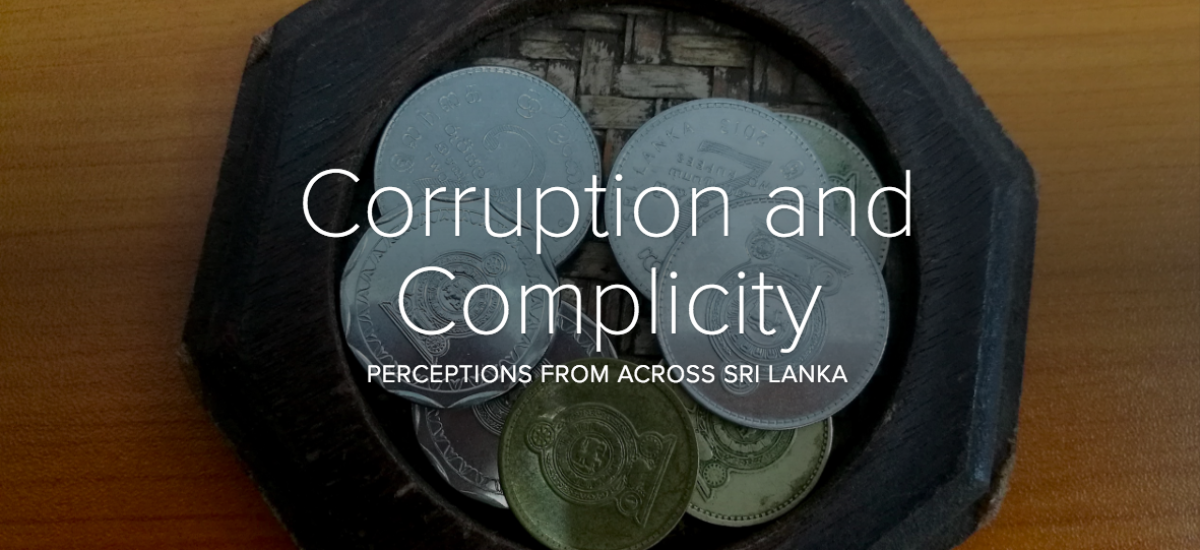Discussions around corruption and its prevalence often focus on the highest echelons of power. In Sri Lanka, irregularities around the Central Bank bond issue continue to make the news – with the President most recently extending the term of the Presidential Commission of Inquiry until December 31. Fewer people would think of the Rs 1000 slipped to a policeman during a routine traffic stop – and the vicious cycle it creates. In 2017, the Commission to Investigate Allegations of Bribery and Corruption (CIABOC) received over 2000 complaints, the majority of them corruption-related. Yet, of the cases that went to Court, 42 of the 62 cases filed were related to bribes. Groundviews set out to ask people a simple question: What did the word corruption mean to them? Following on from this, did people recognise their own complicity in corruption when, for instance, paying a bribe? The responses, compiled across Jaffna, Ampara, Colombo, Deniyaya and Maskeliya, illustrated the many forms that corruption could take. In some instances, there was resignation, even a certain wry acknowledgment of complicity, in others, fear, reticence or anger.
View this article, compiled on Adobe Spark, here, or below:
Editor’s Note: Also read “The Crackdown on Corruption” and “Examining Facets of Corruption in Sri Lanka“.


